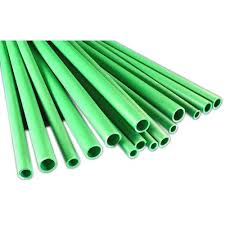Nov . 09, 2024 03:12 Back to list
Leading Manufacturer of Flexible PPR Pipe Solutions for Various Applications
Understanding PPR Flexible Pipe Manufacturing
In contemporary construction and plumbing, the choice of materials is crucial for ensuring durability, efficiency, and safety. One such innovative material that has gained substantial popularity in recent years is Polypropylene Random Copolymer (PPR). Particularly favored for its flexibility, resistance to temperature, and chemical inertness, PPR flexible pipes have emerged as a go-to solution for various applications in both residential and industrial sectors.
What is PPR?
PPR, or Polypropylene Random Copolymer, is a thermoplastic polymer that is widely utilized in the manufacture of piping systems. Its random structure allows for enhanced flexibility and strength, making it an ideal choice for water supply, heating systems, and drainage applications. The pipes manufactured from PPR possess inherent resistance to corrosion, which prolongs their lifespan and reliability when compared to traditional materials like metal or PVC.
The Manufacturing Process
The manufacturing of PPR flexible pipes involves a series of comprehensive steps to ensure the final product meets the stringent quality standards required for safe and efficient performance.
1. Material Selection The process begins with the selection of high-quality polypropylene resin. Manufacturers often opt for raw materials that are certified and undergo rigorous quality checks to guarantee that they possess the necessary mechanical properties.
2. Extrusion Once the raw materials are prepared, they are transformed into pipes through an extrusion process. During this phase, the resin is heated and melted before being pushed through a die to form the desired pipe shape. The precision of the extrusion process is vital, as it directly affects the pipe's diameter, wall thickness, and overall consistency.
3. Cooling and Sizing After extrusion, the hot pipes need to be cooled swiftly to solidify the structure. This is typically achieved using water baths or air cooling systems. Simultaneously, the pipes are sized to ensure they meet the required specifications. Any deviations at this stage can compromise the integrity and performance of the piping system.
4. Quality Control Rigorous quality control measures are essential throughout the manufacturing process. Material samples are often taken for testing mechanical properties, thermal stability, and chemical resistance to adhere to industry standards. This diligent quality assurance process guarantees that the final product can withstand the demands of real-world applications.
ppr flexible pipe manufacturer

5. Coiling and Packaging Once the pipes pass all quality tests, they are coiled or cut into standard lengths, bundled, and prepared for shipment. Proper packaging is crucial to prevent damage during transit and to ensure that the product reaches customers in pristine condition.
Advantages of PPR Flexible Pipes
PPR flexible pipes offer a plethora of advantages that make them attractive for a range of applications
- Thermal Stability PPR pipes can handle a wide range of temperatures, making them suitable for both hot and cold water systems. - Corrosion Resistance Unlike metal pipes, PPR does not rust or corrode, providing longevity and reliability over time.
- Reduced Energy Loss The thermal conductivity of PPR is low, which helps in maintaining the temperature of the water flowing through the pipes.
- Lightweight and Flexible The lightweight nature of PPR makes it easy to transport, handle, and install, while its flexibility allows for easier routing and installation in tight spaces.
- Environmentally Friendly PPR pipes are recyclable and have a lower environmental impact compared to traditional piping materials.
Conclusion
The advancements in PPR flexible pipe manufacturing have revolutionized the plumbing and construction industries. With their robust performance characteristics and environmentally friendly profile, PPR pipes are likely to remain a popular choice for a wide range of applications. As manufacturers continue to innovate and improve production techniques, we can expect even higher quality products that meet the evolving demands of modern infrastructure. Whether for residential plumbing or industrial projects, PPR flexible pipes represent a smart, effective solution that stands the test of time.
-
High-Quality PVC Borehole Pipes Durable & Versatile Pipe Solutions
NewsJul.08,2025
-
High-Quality PVC Perforated Pipes for Efficient Drainage Leading Manufacturers & Factories
NewsJul.08,2025
-
High-Quality PVC Borehole Pipes Durable Pipe Solutions by Leading Manufacturer
NewsJul.08,2025
-
High-Quality PVC Borehole Pipes Reliable PVC Pipe Manufacturer Solutions
NewsJul.07,2025
-
High-Quality UPVC Drain Pipes Durable HDPE & Drain Pipe Solutions
NewsJul.07,2025
-
High-Quality Conduit Pipes & HDPE Conduit Fittings Manufacturer Reliable Factory Supply
NewsJul.06,2025

